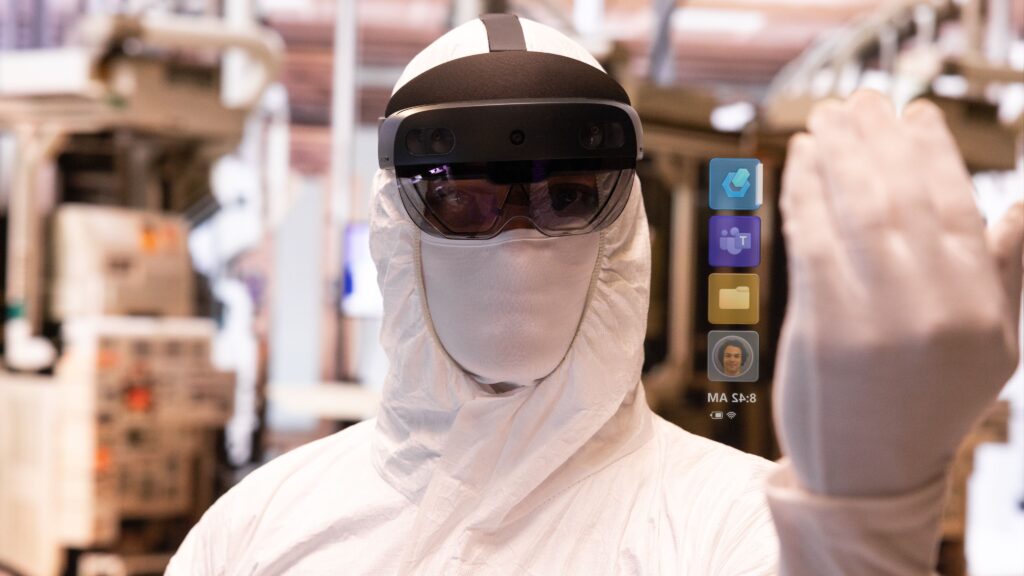AI Is Changing the World
Ticy City wholeheartedly agrees with the statement, “AI is changing the world.” This is no exaggeration. The past year marked a turning point as AI became a key tool for driving organizations and seamlessly integrated into people’s daily lives. As we look to 2025, businesses must closely follow AI trends as its influence becomes even more profound.
Microsoft, a global leader in AI-driven platforms and tools, remains confident in the continuous evolution of AI. With advancements in intelligence and versatility, AI is set to create positive impacts across industries. It will unlock employee potential, boost organizational competitiveness, and equip nations like Thailand to adapt to the fast-changing global landscape. At the same time, ethical and responsible governance of AI remains a top priority.

In line with this, Microsoft Thailand has outlined key AI trends for 2025, encouraging Thai businesses, government agencies, and individuals to embrace AI more broadly. By doing so, organizations can reduce costs, improve efficiency, foster innovation, and create meaningful positive impacts on individuals, society, and the nation.
1. Scaling Laws: AI Breaks New Ground
AI development in 2025 will outpace all previous industrial revolutions, growing exponentially every six months. This rapid progress is driven by powerful computing capabilities and innovative techniques applied to data and algorithms. Organizations, whether seasoned or new to AI, must act quickly to keep up.
AI is no longer just a tool—it’s an essential assistant for life and work. Businesses that integrate AI into their processes and business models will significantly enhance competitiveness. Already, many Thai organizations are using AI to cut costs, improve efficiency, and save employees time. IDC’s 2024 report reveals that 60% of global organizations plan to fully integrate AI within the next two years, up from 46% in 2023.
2. Agentic World: Elevating Work Efficiency
AI agents are set to become indispensable team members, handling routine tasks and freeing employees to focus on more critical work. This shift will enhance workforce efficiency and resource allocation. Tools like Microsoft 365 Copilot and Microsoft Copilot Studio even allow non-technical users to create their own AI agents, transforming workplace dynamics and productivity.
3. Multimodal AI: Innovating Across All Formats
Future AI systems will integrate diverse data types—text, images, and sound—to provide comprehensive and context-aware solutions. Microsoft’s Copilot already supports prompts in various formats, such as Thai text, spoken input, and images. This capability makes interactions with AI more natural and enables smarter, more intuitive user experiences.
4. Data Security: Safeguarding the Core
As AI gains deeper access to data, safeguarding information is critical. Organizations must prioritize robust data governance to prevent unauthorized access and protect sensitive information. Microsoft tools like Microsoft Purview provide real-time data security and compliance management, ensuring AI adoption is both safe and effective.
5. Responsible AI: Ensuring Ethical Use
Ethical AI use is crucial for ensuring fairness, transparency, and societal benefit. Leading companies like Microsoft are implementing strict guidelines to govern AI development and usage responsibly. Tools like AI Guardrails prevent misuse, ensuring AI operates within its intended scope and avoids privacy violations or harmful activities.
These AI trends illustrate the transformative potential for businesses—from addressing inefficiencies to driving exponential growth. Leaders should develop clear AI strategies, integrating it alongside their workforce to unlock new opportunities. Microsoft remains committed to advancing AI responsibly, ensuring its benefits are accessible to individuals, organizations, and nations alike, empowering all to thrive in the age of AI.